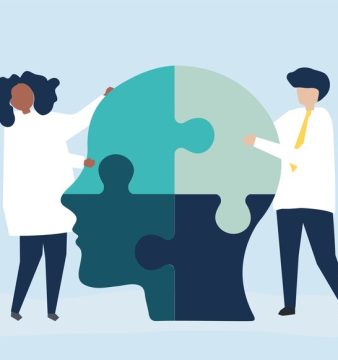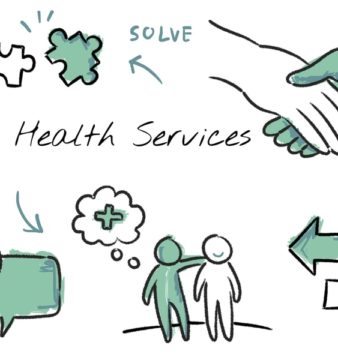PTSD Concerns After Sudan Protests
Since the Transitional Military Council (TMC) and the Forces of Freedom and Change (FFC) reached a power-sharing agreement on 5 June 2019, a much-needed grace period came into effect after eight months of ongoing protests – although protests are still ongoing in Sudan mostly to pay tribute to more than 200 people who were killed by the ruling TMC’s paramilitary forces during the Sudan revolution.
Many protesters in Sudan have experienced and witnessed brutal beatings, rape and even death during the revolution, leading to many experiencing trauma- and stressor-related disorders. According to Dr Ibtesam Mahmoud, a therapist at Omnia’s Centre for Training and Development for Psychological Skills in Sudan, the Sudan revolution had left an impact and affected the mental health and well-being of people in Sudan where many are dealing with post-traumatic stress disorder (PTSD) and stressor-related disorders.
In her eyes, one of most important necessities for one to have a good and healthy mind state is safety and security, which the country currently fails to provide. For many, going out to the streets whether to go to work or school, run an errand or protest, safety is concern. Many fear being killed, raped, beaten or more by paramilitary forces.
The massacre on 3 June 2019 is a recent example of how civilians felt unsafe and insecure whether inside or outside their homes as the Rapid Support Forces (RSF) and other paramilitary forces raided the monthlong mass sit-in in Al Qeyada in front of the headquarters of the Sudanese Armed Forces (SAF), committing atrocities against civilians – killing, raping, beating and looting. At least 120 people were killed in the brutal raid.
Trauma- and stressor-related disorders are caused by any traumatic experience such as abuse, neglect, witnessing violence, losing a loved one or even being in a natural disaster or any other form of hazard. However, not everyone who has experienced a traumatic event will develop a traumatic and stressor-related disorder. If two people witness the same or similar traumatic experience, one may not be affected by the incident as much as the other. A person can develop a trauma if they experienced trauma before, lacking adequate social support and if they are already suffering from a mental illness.
There are many types of traumatic and stressor-related disorder disorders. One of the most common disorders is PTSD, which is triggered by going through or witnessing a terrifying event. Most people who suffer from PTSD have difficulty adjusting to or coping with their daily lives.
If the symptoms continue for months or even years, and if they interfere with routine activities, a person might have PTSD. The symptoms of PTSD vary; however, common symptoms are flashbacks, avoiding anything that might remind you of the event, being anxious, being overwhelmed, loss of interest in once enjoyable activities or hobbies, emotional, numbness, difficulty sleeping, lack of appetite, trouble concentrating, difficulty engaging with others and suicidal thoughts.
After surviving a traumatic event, many people have PTSD-like symptoms at first; however, the majority of people exposed to such events do not develop long-term disorders. Getting timely help and support may prevent normal stress reactions from getting worse and developing into an illness. This may mean turning to family and friends who will offer comfort, or seeking out help from a specialist, therapist or psychiatrist.
According to Dr Ibtesam, a person might need therapy after experiencing symptoms for at least a month. Anybody experiencing symptoms of PTSD or stressor-related disorders needs to seek medical help as the mental health condition might continue and disrupt one’s entire life for a long period. A lot of people are already seeking help and getting it.
If you or anyone you know needs help, visit Omnia’s Centre for Training and Development for Psychological Skills in Khartoum, south of Zaytoona Hospital. You may also contact the centre via email at Omniacenter2016@gmail.com, or call +249 907 805 403 or +249 115 329 722.
You may also seek help from certified therapists and sisters, Dinan and Rawan Ibrahim, the women behind E-therapy Sudan, an online therapy service to help young people in Sudan, struggling with mental health illnesses, to lead a better life. They provide individual and group sessions. Contact them at +249 920 061 232.
 Rawan Abazer is an architect-to-be based in Sudan, trying to put her fingerprints on the world by writing. ‘We put our passion towards traveling and exploring the world into writing,’ she says.
Rawan Abazer is an architect-to-be based in Sudan, trying to put her fingerprints on the world by writing. ‘We put our passion towards traveling and exploring the world into writing,’ she says.






